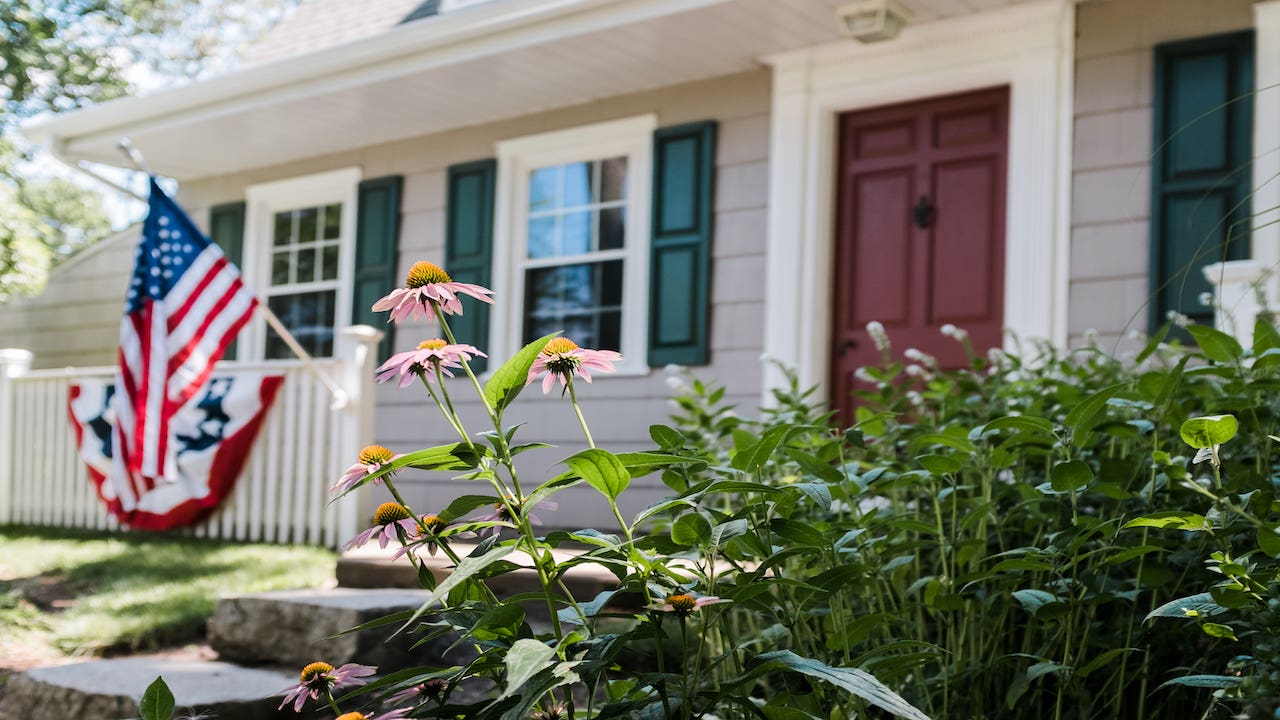Millennials go their own way when it comes to tapping home equity, survey finds

Maybe the millennial generation values having a good time more than their baby boomer parents and Generation X siblings. Perhaps this cohort’s financial tastes have been shaped by historically low mortgage rates and soaring home prices.
Whatever the reason, Americans ages 25 to 40 display noticeably different attitudes about tapping their home equity than do older homeowners.
According to a recent Bankrate survey, fully 14 percent of millennial mortgage holders say they’d tap home equity to bankroll a vacation, compared with just 4 percent of Generation X (ages 41 to 56) and 3 percent of baby boomers (ages 57 to 75).
And 10 percent of millennials say they’d pull cash from their homes for non-essential purchases, such as electronics or a boat. Just 3 percent of Gen Xers and boomers say that sounds like a good idea.
On the other hand, only 49 percent of millennials say they’d tap equity for home improvements, compared with 64 percent of Generation X and 66 percent of boomers.
Michael Golden, co-founder and co-CEO of @properties, a 4,000-agent real estate brokerage in Chicago, says the differing attitudes aren’t a surprise. Millennials long have been said to value work-life balance more than their parents and older siblings.
“They’re a little bit more balanced,” Golden says. “Life experiences are a little more important to them. They’re willing to spend money in a different way, and they’re willing to tap equity in their home in a different way.”
Traditionalists urge caution when it comes to tapping home equity. Melinda Opperman, president of Credit.org, recalls that many homeowners regretted pulling cash from their homes during the boom that preceded the Great Recession.
“Building up wealth in a home is a long, deliberate process, and that wealth creation increases the longer one stays in a home,” Opperman says. “In general, we wouldn’t advise anyone cash out that equity unless they’re using it to improve the property, thereby increasing the value of the home and rebuilding equity faster.”
A much different rate picture
Part of the generation gap is simple: Millennials have entered their home-buying years with mortgage rates at microscopic levels.
By contrast, baby boomers lived through 30-year mortgage rates topping 18 percent in the early 1980s. Gen Xers experienced rates hovering at 9 percent in the 1990s. Millennials barely recollect 5 percent rates — from Jan. 1, 2010, to Jan. 1, 2020, the average rate on a 30-year loan was just above 4 percent.
Then came the COVID-19 pandemic, and 30-year mortgage rates fell below 3 percent, the lowest levels ever. With borrowing so cheap, old rules about avoiding debt might strike some as less relevant.
“Now you’re borrowing in the 2s or the low 3s,” Golden says. “When interest rates are so low, the psychology of debt is much different. It makes sense to have debt.”
Another reality: Americans ages 25 to 40 are focused on living their lives rather than saving for a distant future.
“Millennials have a longer runway,” Golden says. “They’re not thinking about retirement; they’re in the building mode now.”
Home values are soaring
An additional factor plays a big role in millennial homeowners’ feelings about home equity: They were fortunate enough to buy during the hottest housing market in U.S. history. Nationally, home values jumped a record 19.7 percent from July 2020 to July 2021, according to the latest S&P CoreLogic Case-Shiller home price index.
Tapping home equity is possible only if you have equity, and homeowners have it in unprecedented amounts. According to mortgage data firm Black Knight, Americans possessed more than $9.1 trillion in “tappable” home equity as of mid-2021.
“Some of the attitudes toward home equity may be influenced by the recent surge in home prices,” says Greg McBride, Bankrate’s former chief financial analyst. “Those that recall the housing bust and how highly leveraged homeowners got squeezed are likely more reluctant to tap equity unless absolutely necessary.”
Why you should tap equity — and why you shouldn’t
Here’s a breakdown of reasons to pull cash out of your home, along with guidance about whether that rationale makes financial sense:
Home improvements and repairs: Green light.
Boomers and Generation Xers give the thumbs-up to this reason for tapping equity. Not much argument from financial experts. Home improvements are likely to last for years, a timeframe that matches the horizon of mortgage debt. Kitchen renovations and bathroom updates are no-brainers.
But non-essential projects, such as a swimming pool or a game room, won’t necessarily reward you with a corresponding increase in property value. However, if you need a new air conditioner or an updated electrical system, a mortgage is the cheapest money you’ll find.
Consolidating debt: Yellow light.
If you’re carrying credit card debt and paying double-digit interest rates, it could make sense to swap out expensive revolving debt for historically cheap mortgage debt. This strategy comes with a big caveat, however: Pull cash out of your house to pay off the credit cards only if you’re not going to simply run up more credit card debt.
“Using home equity to do a debt consolidation really depends on whether the root cause of the debt has been addressed,” McBride says. “A pattern of overspending could lead to running the credit card debt back up all over again, plus now carrying home equity debt as well.”
Opperman says homeowners who use home equity as a lifeline can dig themselves a deeper hole in the long run. “You only get to cash out that equity once, then it’s spent,” she says. If you follow up your cash-out refi with more spending, you’ll face what she calls a “second reckoning” — but this time, with less of a home equity cushion to pad the fall.
Investing: Yellow light.
Millennials are more likely than other generations to use home equity to invest. While 26 percent of that age group said they liked that idea, just 17 percent of Gen X and 10 percent of baby boomers signed off on the notion of redirecting home equity to another investment.
As with using home equity to pay down debt, the calculus around investing is nuanced. If you want to tap cheap mortgage money to fatten up your retirement savings, and to put those proceeds in a well-diversified portfolio, financial pros give their blessing. There’s a solid case to be made for using cheap mortgage money to shore up your retirement account.
On the other hand, if you aim to tap equity to day-trade stocks or to play the cryptocurrency boom, the smart advice is to think again. Such a gambit might pay off, or you might lose big.
Paying down student loans: Yellow light.
This one is a bit of a gray area. If you owe student loans from private lenders, it can make sense to pay those down by tapping home equity. In contrast to federal loans, private student loans carry higher rates and less flexibility.
On the other hand, if you have federal loans, you need not rush to pay them down, McBride says. Their reasonable interest rates and income-based repayment plans mean federal student loans may not be a crippling form of debt.
Going on vacation or buying electronics: Red light.
Here’s one where financial experts agree with those prudent elders of the baby boom and Gen X.
Think of it this way: Your home loan’s term is 15 or 30 years because real estate is a long-lived asset that will give you years of use and almost certainly gain value. A Caribbean cruise or a gaming console, on the other hand, will be long forgotten even if you’re paying it off for decades. If a cash-out refi is your only option for paying for a vacation or another big-ticket item, better to put the purchase on hold.
Keeping up with household bills: Red light.
Millennials are more likely than other generations to tap home equity just to pay the bills. Fully 28 percent of 25- to 40-year-olds say they’d pull cash out for that purpose, compared to just 17 percent of Gen X and 14 percent of baby boomers.
Yes, the economic reality is harsh for many millennials: Home price appreciation has far outpaced wage gains over the past decade. And many young adults are saddled with hefty student loans.
However, this is another area where financial planners’ advice aligns with the wisdom of older generations. Borrowing for 30 years to pay this month’s child care, groceries and car repairs isn’t a sustainable lifestyle. If that’s your situation, look for ways to boost your income or to tighten your budget.
Methodology
Bankrate.com commissioned YouGov Plc to conduct the survey. Total sample size was 3,657 adults, including 1,041 with a mortgage. Fieldwork was conducted July 26-29, 2021. The survey was carried out online and meets rigorous quality standards. It employed a non-probability-based sample using both quotas upfront during collection and then a weighting scheme on the back end designed and proven to provide nationally representative results.
Why we ask for feedback Your feedback helps us improve our content and services. It takes less than a minute to complete.
Your responses are anonymous and will only be used for improving our website.




